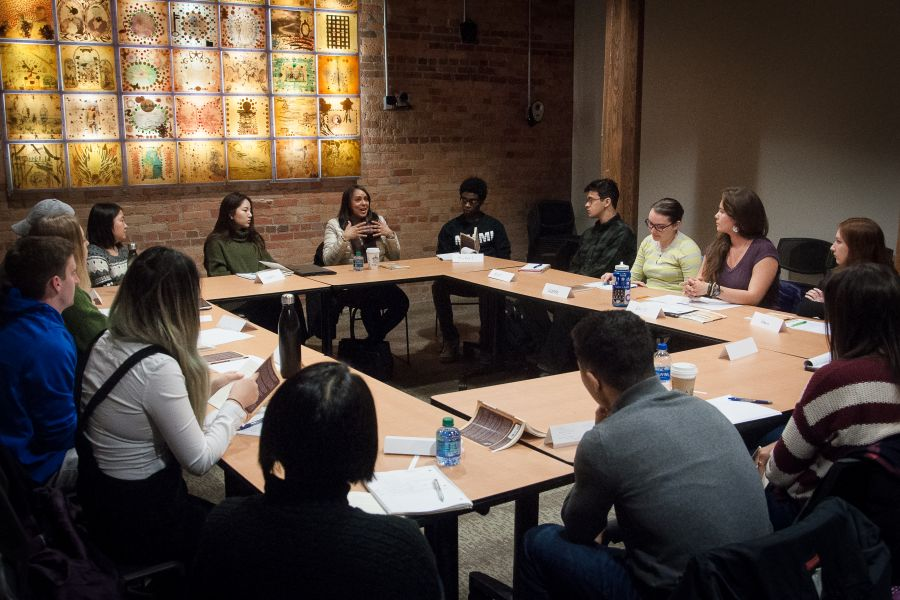
Blog
Monuments and Memory: Uncovering Obscured Pasts

Last week, I joined fifteen other students to sit down with Natasha Trethewey, two-time US Poet Laureate, to discuss the writing process behind her Pulitzer Prize-winning collection. Native Guard is based on the history of a regiment of black Union soldiers who guarded Confederate captives on Ship’s Island off the coast of Gulfport, Mississippi during the Civil War. Although the Confederate POWs have a plaque of dedication at the entrance of the fort, the Native Guards – some of who even wrote letters on behalf of the commemorated POWs to send home to their families - are erased almost entirely from the physical landscape.
Blurring the line between history and literary fiction, Native Guard draws its power from empathetic imagination guided by meticulous archival research. The last few pages of the volume reference the many quotes and documents that Trethewey uses as a basis for her poetry.
For the past two years, as part of a Bass Connections project to engage with university history organized by the Duke Human Rights Center at the Franklin Humanities Institute, I’ve been sifting through archival collections, too, to uncover forgotten histories of Duke – “firsts” among women and students of color, measures won by students activists, as well as successful efforts by staff to improve their working conditions. Like that of the Native Guards, these people’s contributions have been institutionally neglected, through either purposeful choice or the implicit bias of those in leadership, in favor of memorializing donors and white supremacists.
Trethewey’s work teaches us one way to resist these institutional erasures, by turning them into opportunities for artistic creation in the service of activism. Since writing her book, she has advocated for a memorial to be erected in recognition of the Native Guards on Ship’s Island, and the Atlanta Alliance Theater has also adapted the poetry collection into a play, staged in the Atlanta History Center just steps away from the museum’s Civil War exhibit.
In my two years as a communications and events associate at the FHI, I’ve engaged with staff, professors, and guest speakers who have urged me to think about how my academic research is connected to issues that I care about. We know that these histories are missing at Duke. What are we going to do about it?
Helen Yu is a senior undergraduate student majoring in International Comparative Studies and Asian & Middle Eastern Studies, with a focus on Chinese language and culture. She has been a work-study student at the FHI for the past two years.